Imitation is the sincerest form of flattery, but with Spark it is not just the Pop Rocks mixed with soda distillation of the ’90s best platformers; it’s a classic in its own right.
Genre: Action
Developer: Feperd Games
Publisher: Feperd Games
Franchise: Spark the Electric Jester
Release Date: Apr 10, 2017


If you did not get enough platformers in 2017 with Sonic Mania, then Spark might be the seasonal surprise to brighten up your holidays and to continue the Mania. While it is not intended to be a carbon copy of Sonic, Spark: The Electric Jester blends the level-design and overall playfulness of Sonic with additional features inspired by other 16-bit classics. Like the success behind Freedom Planet, what started as years of Sonic fan-projects ultimately blossomed into a developer’s own spark of inspiration that has created a new beloved platforming icon with not only this gem but also a Sonic Adventure style Spark game planned in the future.
To be quite honest, if I did not know this game was created by the same developer who made Sonic Before and After the Sequel, I would have thought Spark: The Electric Jester was a new IP from a new in-house with SEGA. Back when everything wasn’t about Sonic and SEGA branched out with other IPs like Ryster, Vectorman, etc. Spark isn’t simply a great game as an imitator of the past; it takes all the lessons learned from mastering what makes 2D Sonic games so great, adds its own deviations from other classics, and creates a truly memorable platformer that plays to all these referenced games’ strengths with few, if any, of their weaknesses. If you wish to show SEGA that classic Sonic’s designs remain timeless, then supporting games like Mania as well as fan-projects turned into new IPs like Spark and Freedom Planet are what you should support to bring about that change.
Spark! The Cyborg ‘90s Dream; Glory to New-Formed IP!
This is a game that feels like the SNES/Genesis era never died with its conglomeration of ideas lifted from Sonic, Kirby, Mega Man X and dozens of more classics mix-mashed into what may first appear to be too radical of a dream to be true. Instead of being an absolute mess, Spark manages to blend all these elements surprisingly well to create an experience that feels like a time-machine of all that was loved from ‘90s gaming crammed into one game.
As previously mentioned, level-design and the overall playfulness of sandbox-like levels from Sonic are combined with Kirby’s copy ability given a new spin where each weapon offers a distinct playstyle that can shape how boss-fights are played out. In addition, boss battles take a page from Gunstar Heroes/Freedom Planet where they are massive spectacles that break up the platforming focus of the standard levels. Difficulty balances nicely with both player skill and knowledge of move sets tied to abilities that will help to tackle bosses more easily. Movement abilities like wall-jumping, double-jumping, etc. are also mad-libbed from Mega Man X to make Spark feel very versatile while also adding more decisions on the two loadouts you select between Spark’s many hats. Lastly, there is also an ability to ride a hoverboard—you could not make Spark anymore ‘90s if you tried, except for adding Pokémon into the distillation of all that was loved from the past
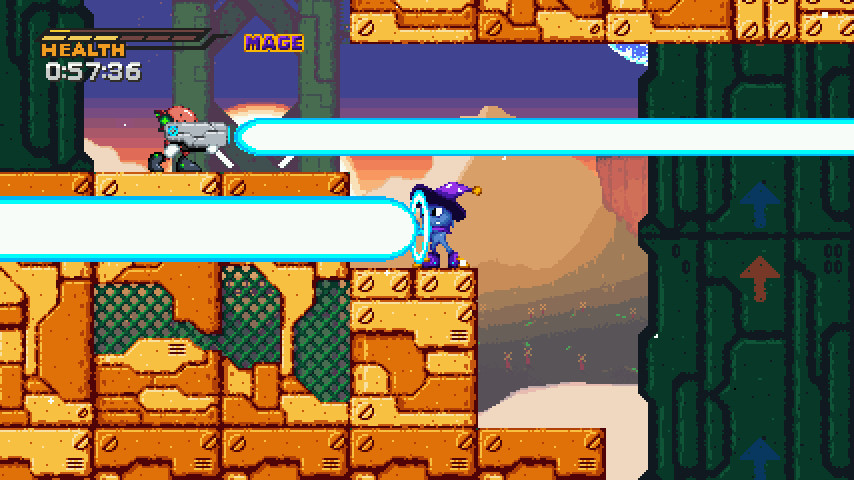
The most important thing to remember is that while Spark largely borrows many influences it does not one-hundred percent recreate them. It was admittedly difficult to unlearn how Sonic’s momentum should work on slopes as Spark’s normal speed and momentum do not one-hundred percent recreate them. It’s not game-breaking, yet it seems strange for a modder who has made Sonic games for over a decade not to get the physics right. This issue is compensated towards the later half where speed boosters help adjust Spark’s movement to be more Sonic-like, so I have to believe this decision was deliberate. This can also be said of the Copy-ability being limited to many different hats with no combinations nor does Spark always have the same move sets as a steady progression like MMX. These all feel like concessions made to make Spark play as a distinct character. which is easier said about his gameplay than his actual personality and storyline.
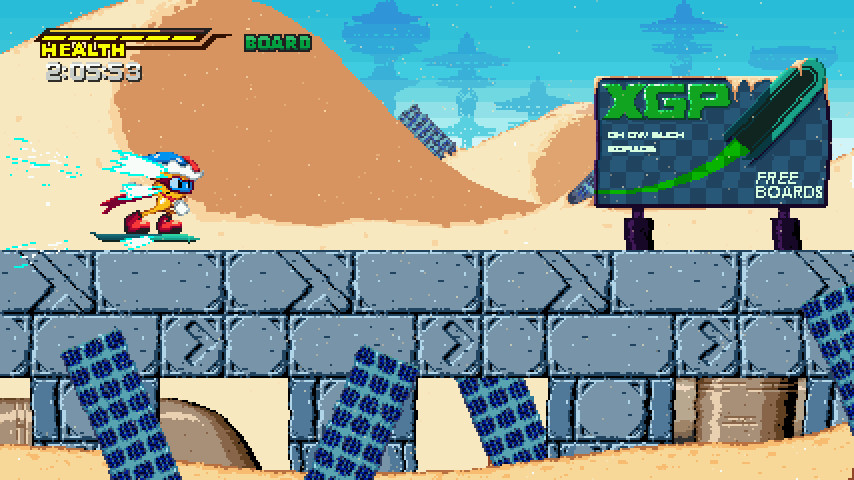
Light is Faster Than Sound, Or Why Someone May Appear Smart Before Speaking
When it comes down to the make-or-break deal of platformers, gameplay always triumphs over good storytelling and world-building, yet games like Sonic 3 & Knuckles as well as Before/After the Sequel showcase they can be as effective to communicate a narrative. Simple stories like Tails and Sonic becoming friends and using foreshadowing techniques in silence does not ruin the pace of platformers, and it can often tell an effective storyline because of its simplicity. It somewhat baffles me that the masterwork you see in the developer’s previous creations are forgotten for his own IP.
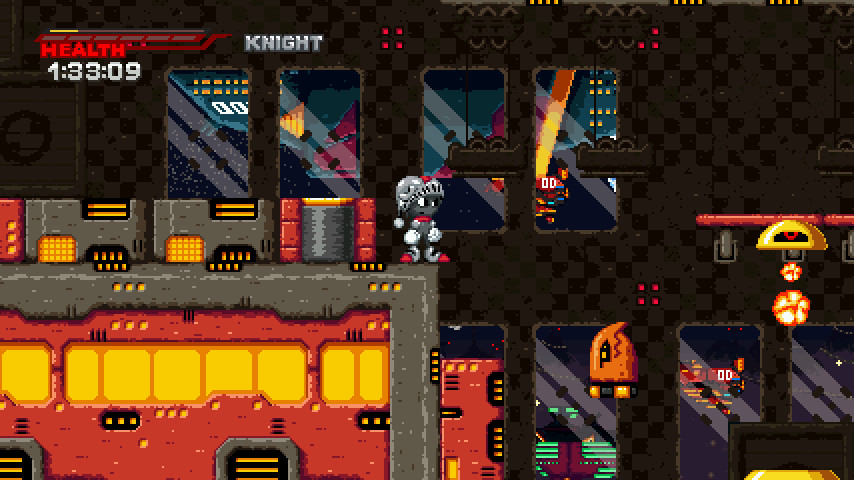
Unfortunately, Spark feels like a confused attempt to tell an overarching storyline between Spark and Fark (another robot replacement). What should be a campy, stupid plot feels like it missed what made the storylines of the Sonic Mods so beloved. Spark‘s narrative combines a convoluted plot of robots uprising because of some primary protocol about handling humanity while at the same time staying simple to the initial set-up of a robot losing his job to another robot. Some of the dialogue is admittedly so cheesy it’s entertaining, but it makes me wonder how much better of a narrative Spark could have been had the game used only its visuals to tell its story. Perhaps in an attempt to make Spark stand out as a character, the game’s tone makes him out to be too much of a comic relief icon. Even Fark’s journey remains largely the same as his epilogue story is simply another means for the player to enjoy more time in these levels from a different perspective with new mechanics that make him a much harder character to play. It’s quite a shame the narrative quality from LakeFepord’s previous works from about the narrative was otherwise lacking, but perhaps it was to focus more so on the core gameplay.
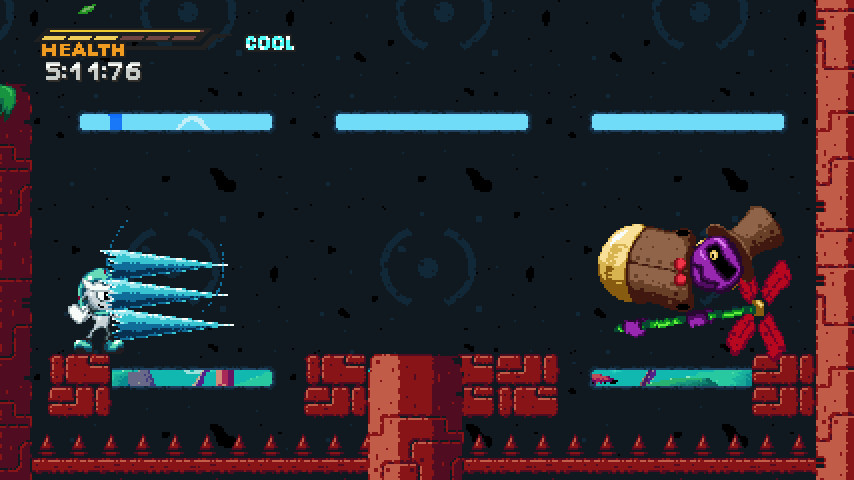
Verdict: It’s Not What You Are That Matters; It’s the Watts You Make That Shine
Minor gripes, gameplay and story related, aside, Spark manages to breathe something new beyond appealing to Sonic fans as a passion project. Chances are if there is some aspect about the game that appeals to you this game will quickly become a modern classic as it doesn’t excel as one idea from the past but a conglomeration of the old as something new. The level-design, power-ups and both Spark and Fark’s modes offer enough replay-value to satiate any fan, and there are additional challenges to incentivize skilled players to master the game. There is simply too much to love not to give this strange looking robot a chance to prove himself.
Whether I think Spark stands the test of time or is a greater platformer than Sonic Mania or Freedom Planet is irrelevant because the qualities that make it distinct are worth playing no matter which one is the best. The fact that these modders have made their debut, big or small, shows us that classic-style platformers have never lost their touch, only their spotlight was lost. The potential all these games show is that the horizon only is brimming with future possibilities, and thanks to Spark, the future of modern 2D and 3D platformers appears to shine even a tad more brightly with innovation.

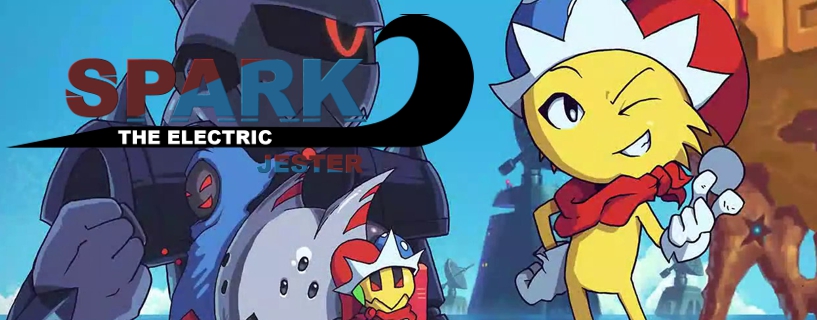









i lick old version full not demo